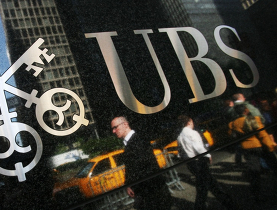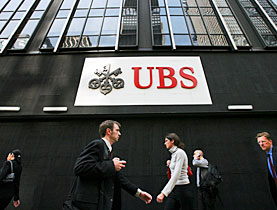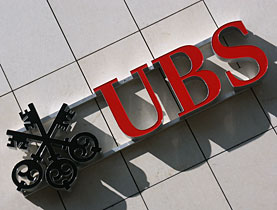UBS probe “targets tax evaders, not secrecy”

The United States authorities will relentlessly pursue Swiss bank UBS in a tax evasion investigation but are not seeking an end to banking secrecy, experts agree.
UBS is facing a court order to reveal the names of clients. However, the probe will seek to break the myth of Swiss banking impregnability and send out a powerful message to potential tax evaders.
The Internal Revenue Service (IRS), backed by the Department of Justice, won the court order earlier this month obliging UBS to produce details of its services to US clients from 2000 to 2007.
The bank said it was taking the matter “very seriously” and was “working diligently with both Swiss and US government authorities, consistent with Swiss law and the legal frameworks for intergovernmental cooperation and assistance”. But it has not yet explicitly said it will comply with the order.
The investigation has been aided by information from a former UBS employee, Bradley Birkenfeld, who admitted during a separate criminal case to assisting tax evasion while at the bank.
“They [the IRS] got the kind of break they had never got before which is a window into the Swiss offshore secret bank accounts,” white collar crime expert Professor Peter Henning from Wane State University in Detroit told swissinfo. “He can provide a roadmap that no-one else could before.”
Prosecutors are following a typical strategy of targeting big name individuals and institutions to send out a strong signal, Henning explained. And the IRS will seek to exploit their advantage to the full, he believes.
“No mercy”
“They are trying to send a message to people who want to use Swiss banks to evade taxes. They want to create the perception that if people want to evade taxes then there is a risk there,” he said.
Professor John Coffee, from Columbia Law School in New York, told swissinfo that UBS is an “obvious target” as the world’s largest wealth manager.
“The IRS believes it is being looted of hundreds of millions of dollars by American billionaires. They have no reason to show any mercy to someone who they see as an egregious aider and abettor of criminal tax fraud,” he said.
Both Coffee and Henning are convinced that UBS will have to comply with the recent court order and is standing on weak ground to mount a defence.
The IRS could impose civil or criminal sanctions, including fines of up to $1 million a day, if UBS fails to cooperate, said Coffee. In addition, it could destroy UBS’s reputation with a successful criminal prosecution or withdraw its licence to operate in the US.
“No conspiracy”
“The IRS could also deny Americans the ability to deal with UBS, signalling that any association with UBS would invite an audit,” he added.
But Coffee has little time for conspiracy theories that the investigation is a direct attack on Swiss banking secrecy or is linked with demands from European Union countries for Switzerland to change its ways.
“The assumption that the US is attacking Swiss banking shows the natural fallacy of seeing yourself at the centre of the universe,” he said. “In all these battles it is common for the foreign jurisdiction to think that they are being picked on, but there is no strong evidence to corroborate this claim.”
swissinfo, Matthew Allen
Former UBS employee Bradley Birkenfeld, a Liechtenstein national Mario Staggl and other “known and unknown” individuals were indicted for assisting tax evasion in May.
Birkenfeld initially denied the accusation, but changed his plea last month while providing prosecutors with details of his actions. He also said UBS had “incentivised” him to help clients evade tax.
In the meantime, the IRS and Department of Justice launched an investigation into the operations of UBS. Senior Swiss banking and government officials soon met with the US authorities, but the details of the meeting were undisclosed.
Earlier this month, a Miami judge authorised a “John Doe” summons, ordering UBS to provide details of its US clients.
People wishing to dodge paying taxes on their assets can do so by three means: avoidance, evasion and fraud.
Avoidance is the legitimate means of structuring finances so they don’t fall under the scope of taxable assets. This can be done, for example, by setting up a trust fund or by changing country residence or nationality.
Evasion is the deliberate concealing of the true state of assets from the tax authorities – in other words, lying about the extent of your assets.
This is a civil offence in Switzerland and some other countries, such as Austria and Liechtenstein, but criminal in most states.
The main distinction between evasion and fraud is that the perpetrator tells lies on official documentation. This is sometimes known as “aggravated” tax evasion.
Unless tax fraud can be proved, Swiss banks are not obliged to hand over details of accounts and client assets to investigators.

In compliance with the JTI standards
More: SWI swissinfo.ch certified by the Journalism Trust Initiative














You can find an overview of ongoing debates with our journalists here . Please join us!
If you want to start a conversation about a topic raised in this article or want to report factual errors, email us at english@swissinfo.ch.